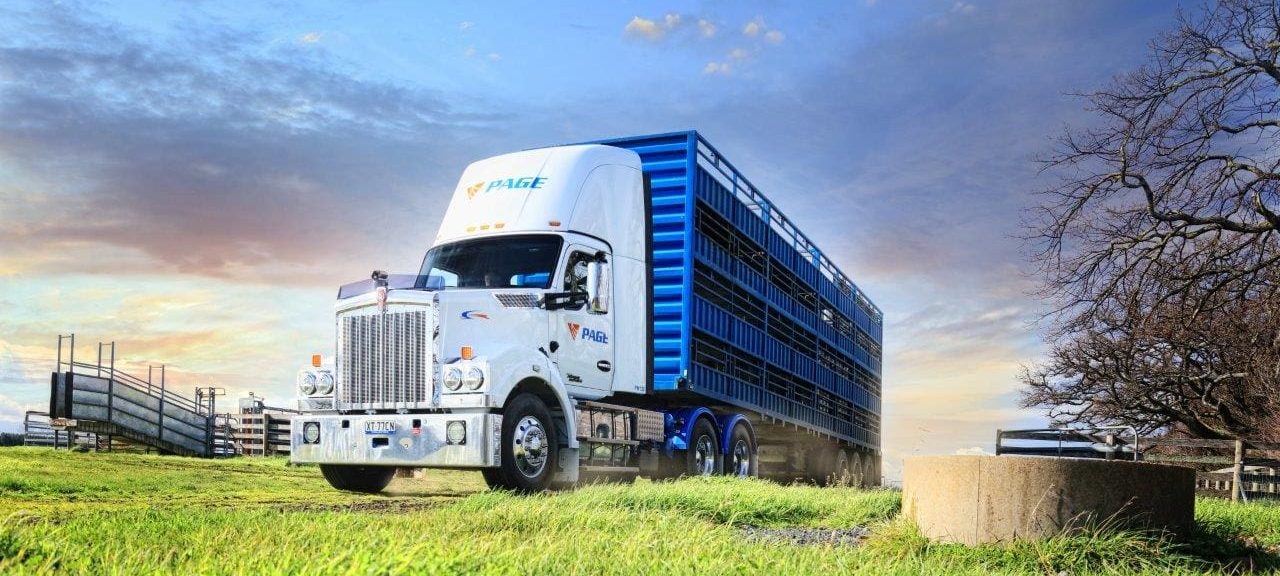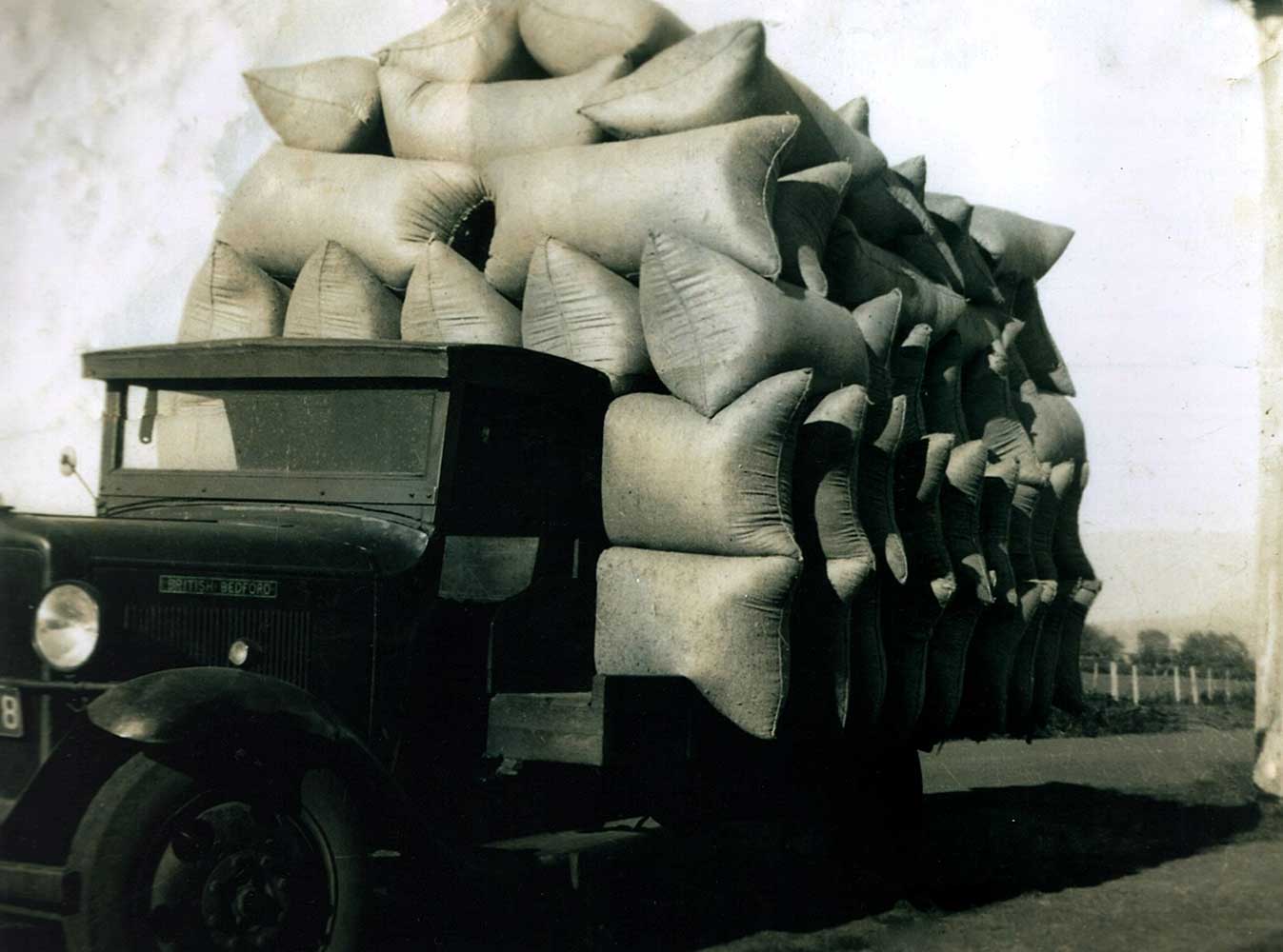IN a reflection of the increase in livestock numbers travelling between Tasmania and mainland Australia, Page Transport has moved up 10 places in this year’s top 25 livestock transporters list.
The company is almost entirely based around trucks crossing Bass Strait, with depots on either side of the boat journey and drivers taking trailers to the boat. It also transports cattle between King Island and Tasmania.
 Brothers Chris and Geoff Page are the third generation of the company, with Chris living in Victoria and operating the depot there and Geoff based in Tasmania. The trailers cross the strait without the prime movers attached.
Brothers Chris and Geoff Page are the third generation of the company, with Chris living in Victoria and operating the depot there and Geoff based in Tasmania. The trailers cross the strait without the prime movers attached.
Doing three trips a day is not unheard of for the Page Transport drivers, with trailer logistics being one of the biggest challenges of the business.
“If you went to another transport company, they would say ‘that’s Barry’s truck and that’s Barry’s crates’. Whereas our blokes are towing a different trailer every day,” Geoff Page said.
“They go to the boat, drop it off, grab another empty, they’re coming back and doing things like that. Keeping a handle on the trailers is quite intensive, because you can drop a trailer off at the boat and you might not see it again for three weeks.”
Growing with the Tasmanian industry
Page Transport has expanded significantly in the past decade, going from 17 prime movers and a 40-deck capacity in 2013 to 24 prime movers and a 110 capacity this year. Geoff Page told Beef Central the company has expanded with the Tasmanian livestock industry.
“The carrying capacity of livestock in Tasmania has increased a lot with irrigation. People are able to hold onto cull stock and breeding stock through drier periods rather than having emergencies,” Mr Page said.
Another big change Mr Page highlighted was the ability for Tasmanian producers to bring in cattle from the mainland for backgrounding.
“We were always allowed to bring in processing cattle, provided they went straight to the abattoir,” he said.
“Now we can bring cattle out of any saleyard in Victoria and as long they are traceable, they can go onto properties for finishing and/or breeding. That encourages a bit more stock movement, not huge numbers though.
“We can also get a few jobs in the off-season when it is not so busy. The south-bound job is usually from September to Christmas, then we truck them back north after Christmas.”
Mr Page said processing changes had also driven up demand for transport across Bass Strait, with JBS moving most of its lamb production to Brooklyn in Victoria.
However, he said some changes were happening with processing in Tasmania as another business called Tasmanian Quality Meats had started to ramp up production at its plant near Longford. Greenham is also operating at Smithton.
Part of its growth has also been the opening of more b-double routes in Tasmania.
The early days of Page Transport
The Page Transport of today is much different to the early days in 1935 when Reg Page started taking stud rams to the airport and sending them to the mainland on a plane.
In 1962, the possibility of rolling trailers onto a boat over the mainland became a reality.
“He put a rigid truck with a crate on the back and they took rams to Deniliquin, then they went through to Geelong, picked up a load of jerry cans and took them back to a hardware store in Tassie,” he said.
“Then they realised what they can do and came up with ways of loading cattle and sheep out of Tasmania.”
Once a shipping trailer, always a shipping trailer
These days, Page Transport has grown to a fleet of 24 prime movers, with a mix of eight Freightliners, eight Western Stars and a growing fleet of Kenworths.
The company’s 40 trailers are mostly built in its factory in China. It also has some second-hand trailers from other carriers in Victoria.
“The trailers need to have shipping latching points, they need effluent tanks and they need to meet a certain standard of ventilation – because it can get quite warm while the trailer is parked on the wharf for a few hours,” he said.
 “Once those trailers have become shipping trailers, they are shipping trailers until they die. You get about 10-12 years out of them then you need to replace them. For the most part we build our own trailers that are full stainless steel and things like that.”
“Once those trailers have become shipping trailers, they are shipping trailers until they die. You get about 10-12 years out of them then you need to replace them. For the most part we build our own trailers that are full stainless steel and things like that.”
Contact:
Geoff Page: Phone: 0418 134 595 [email protected]
Chris Page: Phone: 0419 508 252 [email protected]



HAVE YOUR SAY